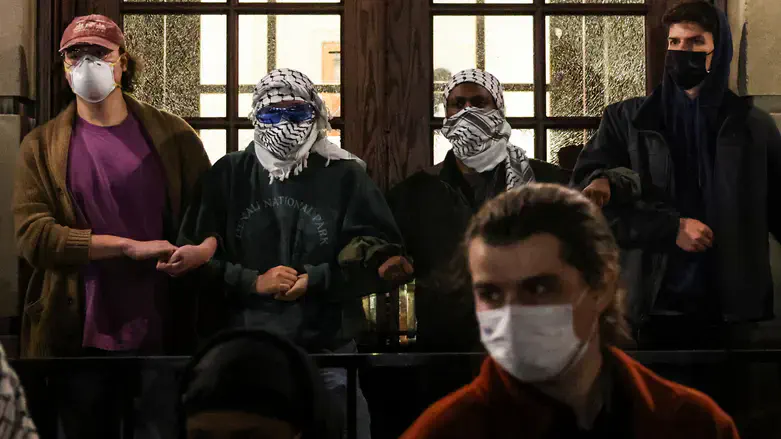
The White House posted an additional jab at anti-Israel protester Mahmoud Khalil, a Palestinian Arab graduate student who grew up in Syria, played a key role in last year’s anti-Israel protests at Columbia University. The arrest, which took place at Khalil’s university-owned residence near Columbia’s Manhattan campus, comes as part of a broader effort by the US administration to revoke legal status from foreign nationals who engaged in campus demonstrations against Israel.
On the official White House Instagram page, the administration posted: "SHALOM, MAHMOUD: “ICE proudly apprehended and detained Mahmoud Khalil, a Radical Foreign Pro-Hamas Student on the campus of Columbia University. This is the first arrest of many to come.” –President Donald J. Trump."
Mahmoud was a negotiator between student activists and university officials as they sought to dismantle the anti-Israel encampment on campus. His decision to act as a public representative made him one of the few demonstrators openly identified with the movement.
His attorney, Amy Greer, told The Associated Press that Khalil was taken into custody by Immigration and Customs Enforcement (ICE) agents on Saturday night. Greer said that ICE informed her they were acting on State Department orders to revoke his student visa. When she argued that Khalil was a permanent US resident with a green card, she was told that this status was also being revoked.
The arrest follows through on a commitment by President Donald Trump’s administration to expel international students who took part in anti-Israel demonstrations. US officials have stated that those who participated in the campus protests effectively forfeited their right to remain in the country by aligning with Hamas, a designated terrorist organization.
Israel has closely followed the growing trend of anti-Israel sentiment on American campuses, with officials repeatedly warning that such protests serve as a breeding ground for extremism. The Columbia protests, in particular, drew significant attention due to their intensity and the university administration’s struggle to maintain order.
Khalil’s arrest underscores the growing consequences faced by activists who participate in anti-Israel demonstrations. While some groups have decried the move as political persecution, supporters of Israel have welcomed the crackdown, arguing that academic institutions should not become safe havens for anti-Israel incitement.
As legal proceedings unfold, the case is likely to set a precedent for how the US government handles foreign nationals involved in similar protests.
